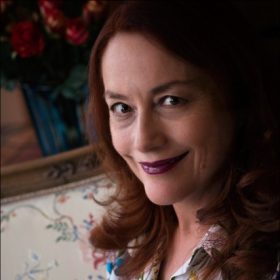Giulia Sissa

Giulia Sissa was trained in Italy and France. She graduated with a Laurea in Classics from the University of Pavia, in 1977. She did her PhD in 1983, in the intellectual milieu of the Centre de Recherches Comparées sur les Sociétés Anciennes, in Paris. In France, she has been a researcher at the Centre National de la Recherche Scientifique (CNRS), at the Laboratoire d’Anthropologie Sociale (LAS) and at the Laboratoire d’Études de Genre et de Sexualité (LEGS), in Paris. In the United-States, she has been Professor of Classics and head of department at the Johns Hopkins University. She is Distinguished Professor in the Departments of Classics and Political Science at UCLA.
While anchoring her research to the societies and the cultures of the Greek and Roman world, Giulia connects the study of the past to moments of reception, recontextualization, and significant resonance in the modern world. She also orients her interests in view of major contemporary issues, such as feminism, sexuality, addiction, democratic theory, utopian thinking, political emotions and eco-criticism.
Her publications include Madre Materia. Biologia e sociologia della donna antica, with S. Campese and P. Manuli (Torino, Boringhieri, 1983); Le Corps virginal. La virginité féminine en Grèce ancienne (Paris, Vrin, 1987), translated into English as Greek Virginity (Harvard UP, 1989), and into Italian, as La verginità in Grecia (Bari, Laterza, 1992); La Vie quotidienne des dieux grecs, with M. Detienne (Paris, Hachette, 1989), translated into Italian, Spanish, Portuguese, Greek, Dutch, and English as The Daily Life of the Greek Gods (Stanford UP, 2000); Le Plaisir et le Mal. Philosophie de la drogue (Paris, Odile Jacob, 1997), translated into Italian, German, Spanish and Portuguese; L’âme est un corps de femme (Paris, Odile Jacob, 2000), translated into Spanish and Portuguese; Eros tiranno. Sessualità e sensualità nel mondo antico (Bari, Laterza, 2004), translated into English as Sex and Sensuality in the Ancient World (Yale UC, 2008), and French as Sexe et sensualité. La culture érotique des Anciens (Paris, Odile Jacob, 2011); Utopia 1516-2016. More’s Eccentric Essay and its Activist Aftermath, co-edited with Han van Ruler (Amsterdam University Press, 2017); La Jalousie. Une passion inavouable (Paris, Odile Jacob, 2015), translated into Italian as La gelosia. Una passione inconfessabile (Bari, Laterza, and English as Jealousy. A forbidden passion (Polity Press, 2017); Le Pouvoir des femmes. Un défi pour la démocratie (Paris, Odile Jacob, 2021).
Giulia is currently working on the erotic as an embodied, sensorial, lived experience; on the plasticity of gendered embodiments, identities and expressions; on the liquid ontologies of metamorphic thinking; on the political pursuit of pleasure, from Athens to Utopia; and on the challenges facing Classical studies in the contemporary world.

